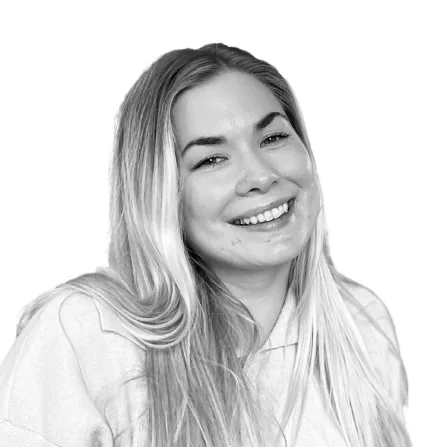My Caregiving Mistakes: Nara’s Story

Nara Moripen

Nara Moripen

In September 2019, my mom got diagnosed with cancer. Not just any cancer, but late-stage small cell lung cancer, which any quick Google search will tell you is very, very serious. We were told it was terminal, and that she might have up to two years left to live – if we were lucky. She turned 64 a few days later. We had one hell of a birthday party for her. (Kidding, we spent it in between waiting rooms, consultations and long drives.)
We quickly found out that nothing could be done. They didn’t try to sugarcoat it or hide it behind different kinds of experimental treatments. They took the “do you want the bad news, or the bad news first” approach. Of course, that didn’t stop me from spending days looking into clinical trials, reading research papers and speaking with any expert that would take my calls, just to find a glimmer of hope. I never did find that glimmer, and eventually, we came to terms with the prognosis. We tried to focus on what was important: making sure Mom could stay as comfortable as possible and that we could make the most out of the time we had left.
During the next year, I dedicated most of my free time to helping mom, and eventually moved in with her, when she started to feel more fatigued and worn out from treatments and the illness. She passed away in November 2020.
Looking back at my time as a caregiver, I’m mostly proud of myself and my sisters for everything we did right (I’ll write about these one day). But for now, I want to talk about the things I didn’t do too well. Hopefully, my learnings can be your strengths.
I didn’t want to be a burden.
My mom got diagnosed in September 2019, and passed away in November 2020. Remember something else that happened during that time?
Covid, and the strain I knew all healthcare workers were under, made me hesitant to reach out to nurses and doctors for help. Actually, who am I kidding, I would have been hesitant anyway. But with the whole healthcare system on fire, I really didn’t want to take up their time with my – what I thought were silly – questions.
I remember once, I noticed that mom’s leg was starting to swell up. So I did what anybody in my position would have done: called her doctors and asked for a home visit. Nope, I didn’t. Instead, I tapped into my resources and called a family friend who was a home carer. She advised us to put compression bandages on the leg. I did this myself, and while in theory it could have helped, it didn’t do so in practice. I hadn’t wrapped the bandages properly, and two massive blisters formed on her ankle and knee.
Long and painful story short, this turned into a high risk of infection and we took mom to the hospital to get her blisters and wounds tended to. She had to spend 3 nights there, and anyone who has experienced serious illness, knows that you do not want your loved one to spend any more time in the hospital than absolutely necessary.
It turns out that an anti-diuretic pill from the home nurse could’ve taken care of the swelling, and saved us so much pain.
I didn’t (always) trust my gut.
I came into caregiving with a lot of humility, knowing that I didn’t really know anything at all. I had a lot of respect for medical professionals – still do – so I often just ‘took their word for it’ and didn’t always advocate well enough for my mom or myself.
What I failed to take into account initially was the fact that I was with mom 24/7. No one observed her like I did, and no one noticed her physical, cognitive, and emotional decline like I did. So when I finally started trusting my gut and speaking up, people listened, and she received much better care.
Sometime during the last couple of months, I saw her change over night. The next day, I told the doctors that I felt something was up, and that perhaps her cancer had spread to her brain. They said she looks fine. When she finally got a brain scan, they confirmed tiny tumors in her brain, and we ‘unlocked’ access to much more support and end-of-life care, which was a godsend.
I didn’t ask the right questions.
Usually, I’m a VERY curious person, but for some reason, I was often hesitant to ask questions to mom’s doctors, palliative care team, and social worker. I didn’t ask what symptoms to look out for, what support we could get, or what would happen towards the end. Part of me legitimately didn’t really know what questions to ask. The other part of me probably didn’t want to face the answers.
When mom started the dying phase, I felt it. I could sense something had changed, but I was too scared to ask the home carers and confirm it. They all knew, but for some reason, were reluctant to tell us.
I didn’t communicate well with my employer… or at all.
This one is an interesting one, since I wholeheartedly believe that employers should take a more proactive approach in helping employees with caregiving responsibilities. Especially when it’s of an intense nature, like caring for a loved one with a terminal illness. But that being said, when things aren’t handed to you, you need to take matters into your own hands.
I didn’t. I assumed that when I informed my bosses that my mom had a terminal illness with less than a year left to live, that they would somehow immediately understand my needs. Instead, I was put on intense projects with a lot of client-facing meetings (I worked in consulting at the time – bring on the judgement), and was never informed of my rights or opportunities for support, even though I had asked.
Things went too far and when I met my eventual breaking point, I had to take unpaid leave. Later, when I returned to work, there was no loyalty left to the company, and I very quickly handed in my resignation.
I didn’t set boundaries early enough.
Like most people, I had to take on the caregiving role over night. There was no ‘save the date’ card in the mail. I wasn’t given time to reflect on what I was comfortable doing as a caregiver. Over time, and way too late, I started figuring out what I was willing to do, what I was fine doing if I had to, and what I absolutely did not want to do.
I never talked about this with my mom or other family members either. I took on a lot of things by default. I was happy to schedule appointments, coordinate with doctors, nurses and specialists, run the household, prepare meals, take care of medications, and tons more. Heck, I even installed an alarm for mom to press when she needed me, which woke me up at odd hours of the night for weeks. Where both mom and I drew the line was hygiene. More specifically, bathroom visits. When she no longer could go to the bathroom by herself, we realised we needed outside help. Thankfully, this was quickly arranged and balance was restored.
I didn’t ask for, or accept much help.
I’m a proud person. (Somewhere out there, my colleagues, friends and family chuckled loudly at this obvious admission). I like doing things myself. It also doesn’t help that my family is on the closed off side, and there was an expectation to keep things private.
I wish I had opened up more. That I had answered “how are you” more honestly. Or that I was less considerate of others. I wish I had taken more people up on their offers to help.
More often than not, I was so overwhelmed that I actually didn’t know what to ask for. But had I been more deliberate and open to the idea of help, I would have probably figured it out. Going grocery shopping, helping with research, keeping my mom company while I go on a mental health walk. The opportunities were endless, but I rarely let anyone in and didn’t outsource much outside of our very small, immediate family.
I’m sure with a moment of reflection, I can list a million other ways I did this whole caregiving thing wrong. While I wish I was a natural-born caregiver, I don’t beat myself up over my mistakes. I know I did my best and that at the end of the day, mom was better off because my sisters and I were there for her, even with all our flaws.
Give yourself the space and kindness, to try, to make mistakes and to figure things out.

Written by Nara Moripen
Your email address will not be published. Required fields are marked *
Nara, this story touched me personally. My father was diagnosed with stage 4 small-cell lung cancer 8 months ago, which has since then metastasized into the brain. This was VERY helpful!! Would love to see a piece or some advice on how you approached the palliative care conversation with your mom and loved ones and any resources you recommend going through. Currently, I am struggling and do not even know where to begin or how. Thank you so so much for posting this app on Reddit, and providing me a little bit of strength. Wishing you all the best!
Thank you so much for the kind words, Jennifer! A piece on the things I did right is in the works, for some reason, it’s easier to focus on the things I did wrong than what I did well. Looking back at my caregiving journey (and the extra time I had with my mom), I have a lot to be proud of and I do think it can help others to read about that too. Have a wonderful day and thank you for the support!
♥️♥️♥️‼️ Nora, this is absolutely beautiful and I am certain it will help many. As a formal serial caregiver (mother, father, husband), for the sake of your own wellness, please get started on the piece where you tell us all that you did right! Sending you love and support.